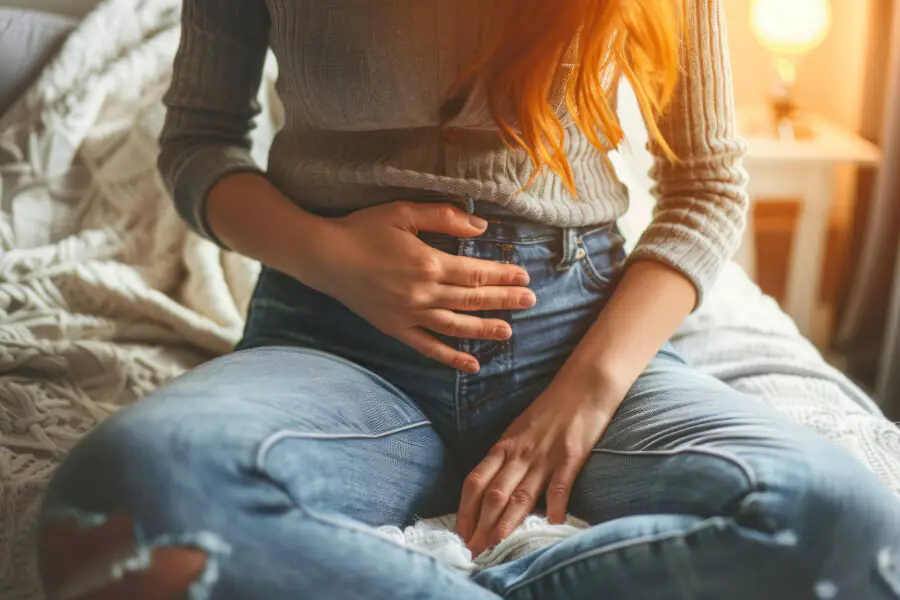Menstrual pain, often referred to as dysmenorrhea, is a common experience for many women. It can vary in intensity, affecting daily activities and overall well-being. While over-the-counter medications are available, many seek natural remedies for menstrual pain relief. Below are some effective and comforting methods to reduce menstrual pain using natural approaches.
What Causes Menstrual Pain?
Period cramps are caused by the contraction of the uterus as it sheds its lining during menstruation. These contractions are triggered by chemicals called prostaglandins, which are produced in the lining of the uterus. Higher levels of prostaglandins are often associated with more severe cramping.
Menstrual pain can be caused by various factors, including:
- Hormonal imbalances: Elevated prostaglandin levels lead to more intense uterine contractions.
- Underlying health conditions: Conditions like endometriosis or fibroids can increase cramping.
- Lifestyle factors: Stress, lack of exercise, and poor diet can also contribute to menstrual pain.
Why Are Period Cramps Painful?
The pain experienced during menstrual pain can range from mild discomfort to severe agony. When the uterus contracts, it can temporarily reduce blood flow, leading to pain. This can cause the muscles to cramp and trigger discomfort that radiates to the back and thighs. Hormonal fluctuations can also heighten sensitivity, contributing to the pain experienced during this time.
How to Tell if Your Period Cramping Is Normal
Normal menstrual pain typically begins one to two days before your period and lasts for a few days. Symptoms can include:
- Throbbing or cramping in the lower abdomen
- Pain that may radiate to the back and thighs
- Symptoms that improve with the start of menstruation
If your cramps are accompanied by severe pain, heavy bleeding, or last longer than usual, it’s essential to consult a healthcare professional.
Can Bad Period Cramps Be a Sign of Something Else?
While many women experience cramping during their periods, severe pain could indicate an underlying condition, such as:
- Endometriosis
- Uterine fibroids
- Pelvic inflammatory disease (PID)
If you suspect your cramps are beyond the typical menstrual pain, seek medical advice for proper diagnosis and treatment.
Can You Heal Menstrual Pain With Home Remedies?
Yes! Many women find relief through various home remedies. Here are some effective strategies to reduce menstrual pain naturally.
Home Remedies Often Do the Trick
Apply Heat to the Abdomen
Applying a heating pad or hot water bottle to your lower abdomen can help relax the muscles and relieve cramping. The warmth increases blood flow and eases tension, providing soothing relief.
Engage in Gentle Exercise
Light exercises such as walking, swimming, or yoga can help reduce menstrual pain. Physical activity releases endorphins, which act as natural painkillers and can help improve your mood.
Reach Orgasm
While it may seem counterintuitive, reaching orgasm can help relieve menstrual pain. During orgasm, the body releases endorphins and oxytocin, which can reduce pain and improve overall comfort.
Massage the Abdomen with Essential Oils
Essential oils such as lavender, clary sage, or peppermint can be used for abdominal massages. Mix a few drops with a carrier oil and gently massage your abdomen to promote relaxation and relieve pain.
Consider Dietary Changes
A balanced diet rich in fruits, vegetables, whole grains, and lean proteins can help manage menstrual pain. Foods high in omega-3 fatty acids, such as salmon and walnuts, may also help reduce inflammation and cramping.
Use Over-the-Counter Medication
While we focus on natural remedies, over-the-counter medications like ibuprofen can provide quick relief. However, always consult with a healthcare professional before taking any medication.
Soak in a Tub
Taking a warm bath can provide relief from menstrual pain. The warm water relaxes your muscles and can help soothe cramping. Adding Epsom salts can improve relaxation and provide additional benefits.
Do Yoga
Certain yoga poses can relieve menstrual pain by stretching and relaxing the muscles in your abdomen and lower back. Poses like Child’s Pose, Cat-Cow, and Supine Twist can be particularly helpful.
Avoid Caffeine and Salty Foods
Caffeine and salty foods can exacerbate bloating and discomfort during your period. Limiting these substances may help reduce cramping and improve overall comfort.
Stay Hydrated
Drinking plenty of water can help reduce bloating and discomfort during your period. Herbal teas, particularly ginger or chamomile tea, can also provide soothing effects and help with cramping.
Consider CBD
Cannabidiol (CBD) has gained popularity for its potential pain-relieving properties. Some women find relief from menstrual pain by using CBD oil or topical creams. However, always consult with a healthcare professional before trying CBD products.
Consider Birth Control
Hormonal birth control methods can help regulate periods and reduce the severity of menstrual pain. If cramps are a significant issue for you, discussing birth control options with your doctor may be beneficial.
Switch Up Your Sleeping Position
Sleeping on your side with your knees drawn up can help relieve pressure on your abdomen and reduce cramping. Experiment with different positions to find what feels best for you.
When to Contact a Doctor
If your menstrual pain is unusually severe, lasts longer than a few days, or is accompanied by heavy bleeding, nausea, or dizziness, it’s essential to consult a healthcare professional. They can help determine if there is an underlying condition that requires treatment.
Conclusion
Menstrual pain is a common experience for many women, but there are various natural remedies available to provide relief.
From applying heat and engaging in gentle exercise to dietary changes and essential oils, these strategies can help ease discomfort and improve your overall well-being during your period.
Remember, while home remedies can be effective, it’s always important to listen to your body and consult a healthcare professional if you have concerns about your menstrual health.
FAQs
What is the best tea for menstrual pain?
Herbal teas like chamomile, ginger, and peppermint are excellent choices for soothing menstrual pain. They have anti-inflammatory properties and can help relax the muscles.
Can juices help with period cramps?
Fresh juices made from fruits and vegetables rich in vitamins and minerals, like beetroot and orange juice, can help reduce inflammation and promote overall health during your period.
What can make period cramps worse?
Caffeine, salty foods, and high-sugar foods can exacerbate bloating and cramping. Stress and lack of sleep can also intensify menstrual pain.
How to get instant relief from period pain?
Applying heat, engaging in light exercise, or taking an over-the-counter pain reliever can provide quick relief from menstrual pain. Consider trying yoga or deep breathing exercises for additional comfort.




